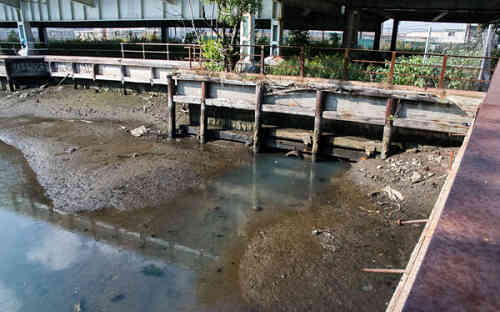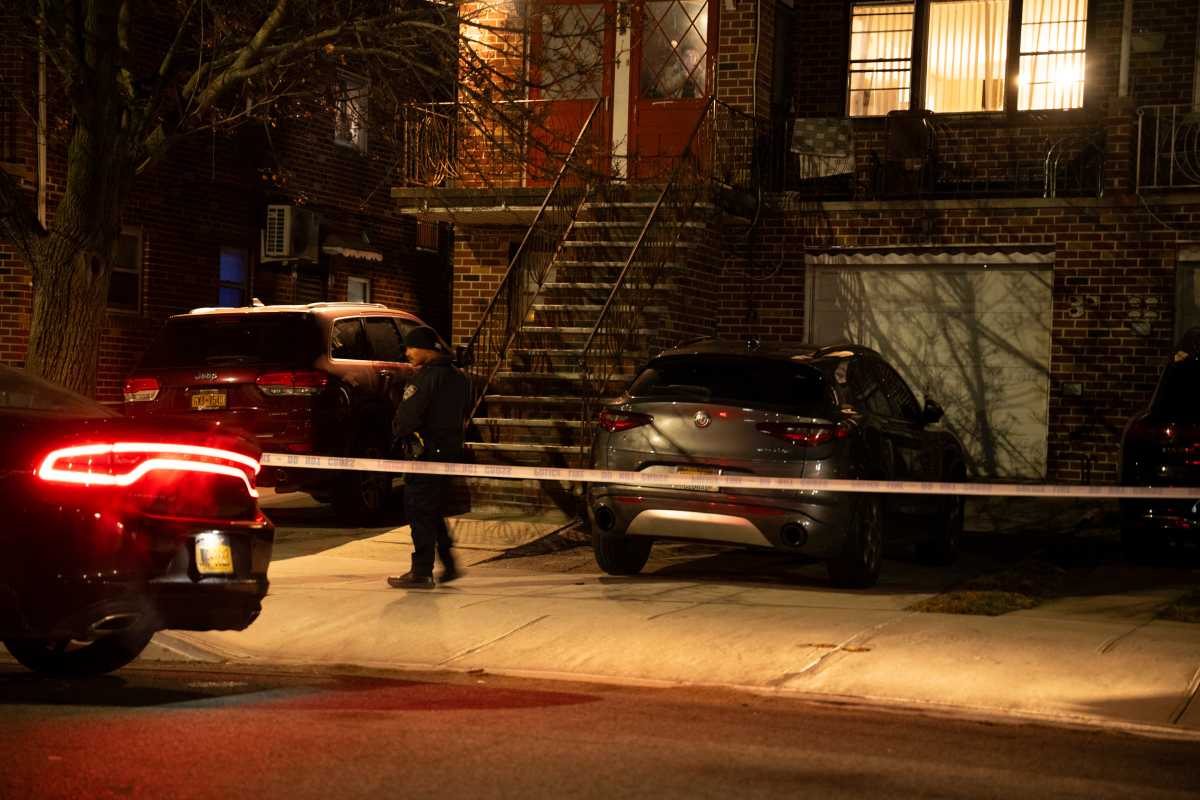Landlords caught illegally dumping 200,000 gallons of raw sewage every day into Coney Island Creek got off with just a slap on the wrist — a paltry $400,000 fine — when they should have been forced to pay millions for the fetid waterway’s cleanup, locals demanded this week.
The state Department of Environmental Conservation announced last week that the top brass at the Beach Haven Apartments paid a $400,000 fine for pumping the waterway full of poop through an illegal sewage hook-up, possibly for years. But one local environmental advocate said that the dumpers should have been fined at least enough to cover the cost to clean the waters.
“The punishment did not fit the crime,” said Pamela Pettyjohn, president of the Coney Island Beautification Project. “They have been dumping for several years. I’m sure $400,000 is what they collect in rent for a month. This is not enough money to start cleaning anything.”
But the agency characterized the fine as more than adequate, calling it the largest ever issued to a residential building complex for illicit sewage.
Of the fine, $350,000 will go to the National Fish and Wildlife Foundation and the American Littoral Society for projects to improve water quality in Coney Creek. The National Fish and Wildlife Foundation will outline its plans by the end of September, and the Department of Environmental Conservation will make its decision about how to spend the money by the end of November, according to an agency spokeswoman.
The remaining $50,000 will go to the Department of Environmental Conservation’s marine resources protection efforts, the agency said, and those funds will not be restricted to use at Coney Creek.
Beach Haven must also implement a “best-management-practices plan” to prevent any further sewage leaks, according to the agreement, which requires the apartment complex to keep its storm water and sanitary sewer lines capped and cleaned out, among other requirements.
Regulators first discovered that 16 buildings in the complex had been dumping the sewage in October 2016, but the state agency soon came under fire for failing to alert Coney Islanders of the dumping soon enough and trying to shift the responsibility of notification onto the city, and for failing to guarantee that any settlement funds would even go towards cleaning up the creek.
Pettyjohn said it seemed the agency was again trying to avoid contact with community members by making a secret cleanup settlement behind closed doors.
“They still haven’t asked the community how we think the money should be spent,” she said. “All these decisions were made with no community engagement.”
The Department of Environmental Conservation said the National Fish and Wildlife Foundation will formulate its cleanup plans with input from the community.
Another clean-water activist also called the fine inadequate — especially compared to the $10 million fine the agency levied against the city in 2010 for dumping raw sewage into the Newtown Creek in Greenpoint.
“While that fine may seem like a big number, it’s not very big compared to those that have been levied on other water bodies,” said Water Trail Association co-founder Rob Buchanan. “I would like to see the reasoning behind the size of the fine, because to me, it could’ve been higher, and I’d like to understand why it wasn’t. Being that it was for so many years, and it was such a grievous action, I don’t think they were fined enough.”
Buchanan added that the Department of Environmental Conservation still needs to let the public know how long the illegal dumping went on, was it intentional, and, if so, why landlords weren’t charged with a crime.
“The community really deserves a clear narrative and a clear timeline,” he said.
Pettyjohn and Buchanan said they believed the dumping went on for about four years, and Pettyjohn said Beach Haven should have been charged $1 million for every year that it dumped the sewage, bringing her ideal fine to $4 million.
Beach Haven Apartments could not be reached by press time, but initially denied the allegations to this paper in October 2016.
Community Board 13 is trying to set up a public meeting with reps from the state agency and the two foundations sometime next month, according to district manager Eddie Mark — hopefully next month — with the state agency and reps from the two foundations to give locals a chance to discuss how the funds will be spent.

























